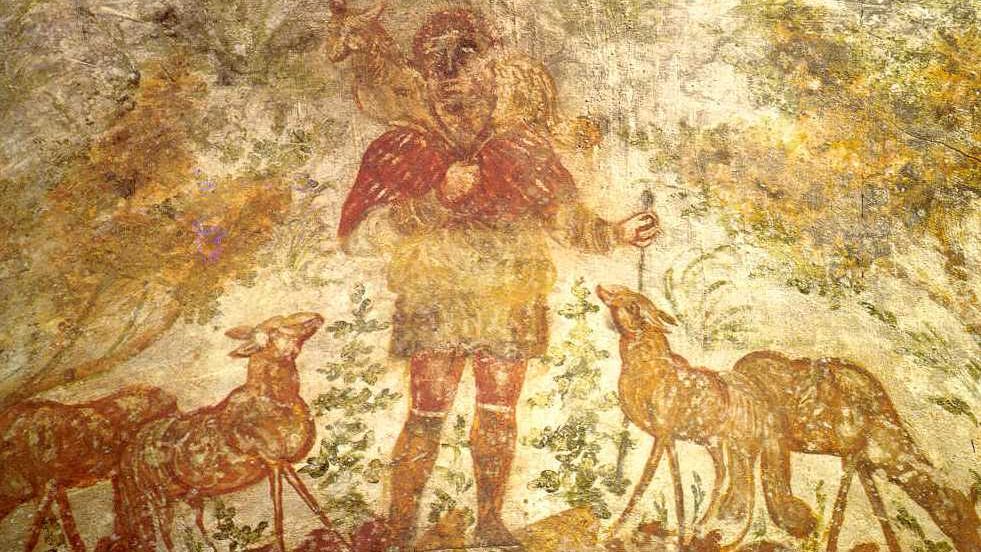The Most Beloved Psalm
28th Sunday in Ordinary Time (Year A)
“The Lord is my shepherd, I shall not want.”
Ps 23:1
This Sunday’s readings focus in on the idea of feasts, which is a common scriptural image of the joys of heaven. In the context of the Mass especially, it is easy to read these passages in light of the Eucharistic feast Jesus provides for us in the Church.
One of the readings this Sunday is Psalm 23. This is perhaps the most beloved and well known of the psalms, but you may not have thought about it in relationship to the Eucharist. But how else are we to understand Christ as the Good Shepherd who feeds us? If the feasts referenced in our readings from Isaiah and Matthew’s gospel point toward the Eucharist, then so does the table that is spread before us in Psalm 23:5.
Before our Good Shepherd lays his table before us, however, he first leads us to green pastures and gives us repose. In some translations, this verse says, “He makes me lie down in green pastures.” Before Christ begins to teach about the Eucharist, he first feeds the crowds with a miraculous multiplication of the loaves and fishes. Both Mark and John’s gospel record Jesus making the disciples to lie down on the grass before he feeds them. He is showing them (and us) through this gesture that he is the Good Shepherd spoken of in this psalm.
We all need food to survive. It is one of our most basic needs. In feeding us, Christ our Shepherd is doing more than just filling our bellies. He is restoring our life (Ps 23:3) and giving us an eternal dwelling in his own house (Ps 23:6). But to get to this place of eternal rest and satisfaction, he first leads us through the valley of the shadow of death (Ps 23:4). Why? Couldn’t the Good Shepherd just lead us straight to our abode of eternal rest without the death and darkness part?
What makes us think we know better than God the way to happiness? Christ knows the way because he is the way (cf. Jn 14:6). Jesus offers us eternal life, but to receive it, he says we must take up our cross and follow him. He shows us the way through his sacrifice, and so we must follow our Shepherd through the valley of death.
Even though we are fed from his banquet and are citizens of his kingdom, we still live in a world of pain and suffering. But we live here as travelers who are journeying somewhere else. We know that this is not our final abode, and so we have no fear, for Christ, our Good Shepherd, is by our side.
This is why St. Paul can say he is at peace both in need and in abundance, because he knows that Christ is with him either way. He’s learned not to look to material things for the source of his joy and peace. He knows the Lord is his shepherd, so he shall not want (Ps 23:1). He can do all things through Christ who strengthens him (Phil 4:14).
The food Jesus offers at his banquet is himself. “My flesh is true food and my blood is true drink,” he says (Jn 6:55). “I am the living bread that came down from heaven; whoever eats this bread will live forever; and the bread that I will give is my flesh for the life of the world” (Jn 6:51).
The Eucharist is food given to us to sustain us on our journey through this dark valley, but it is only a foretaste of what awaits us. Heaven is a feast because heaven is nothing other than perfect union with God in Christ. There in that garden of repose we will truly have our fill, not of bread and wine, but of eternal life.

